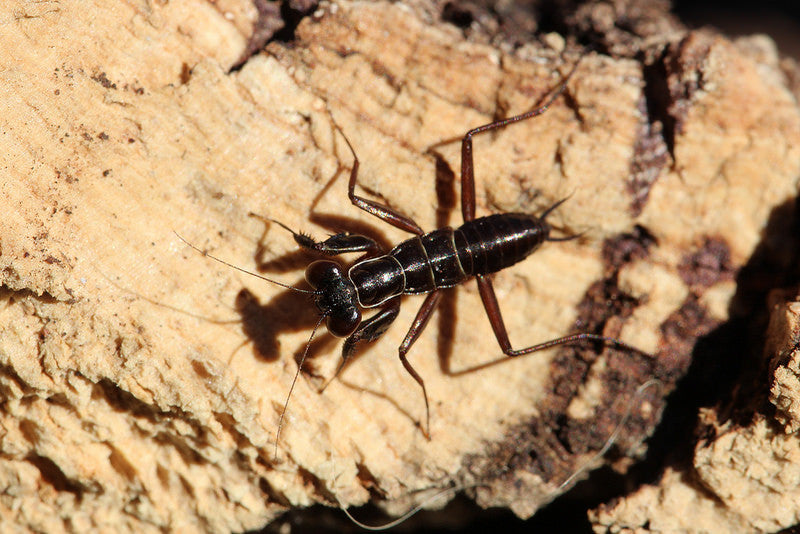
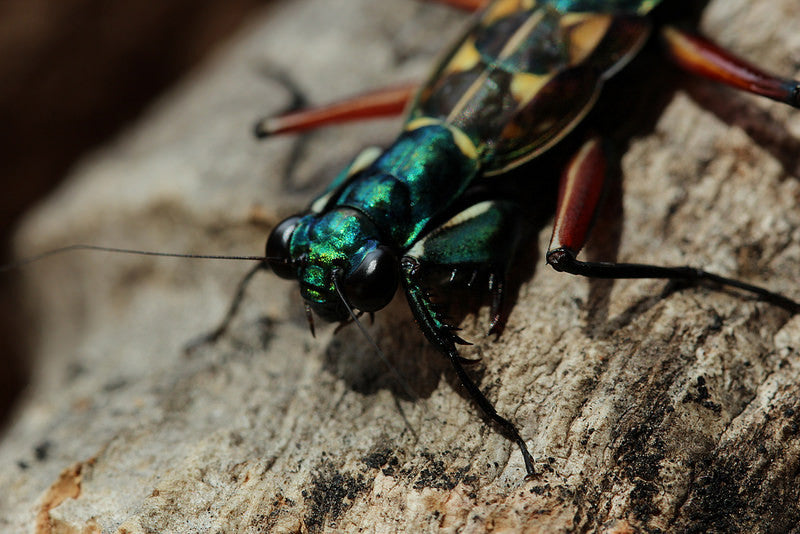
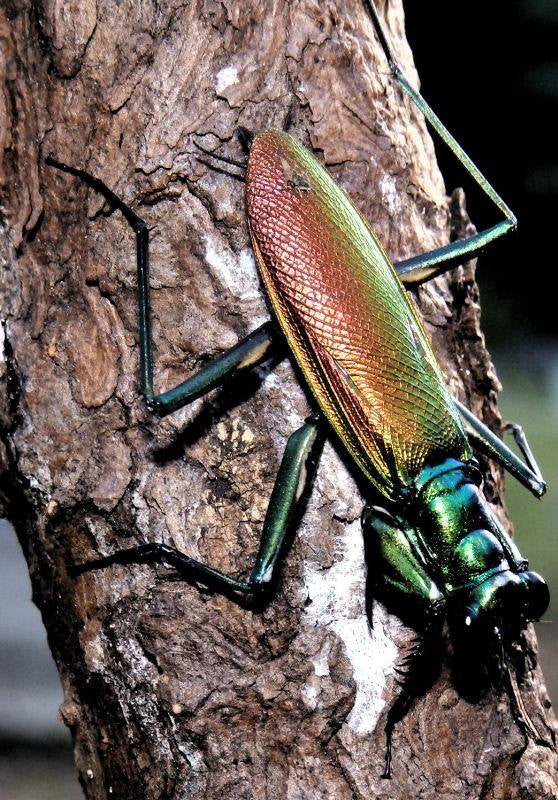
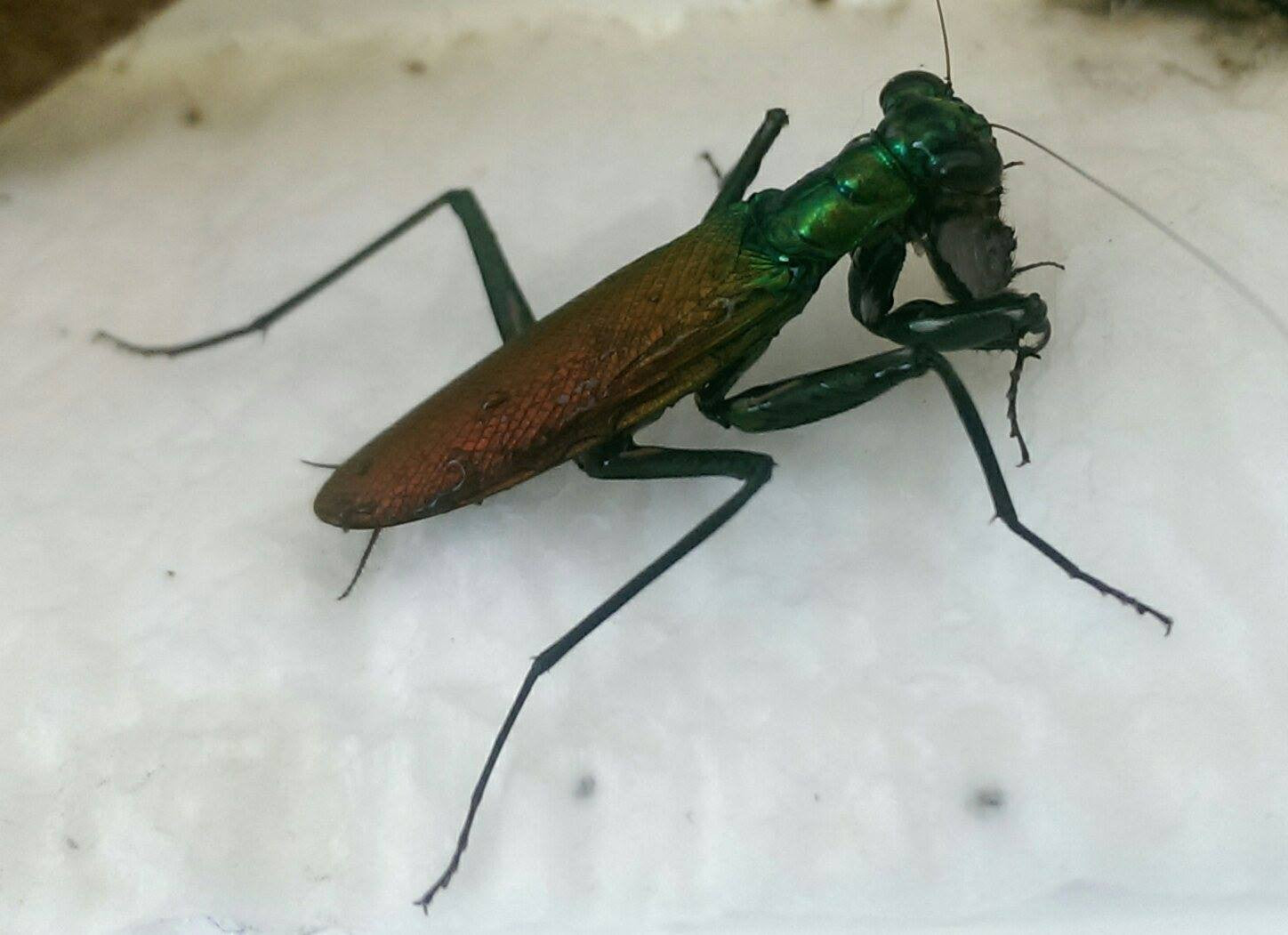
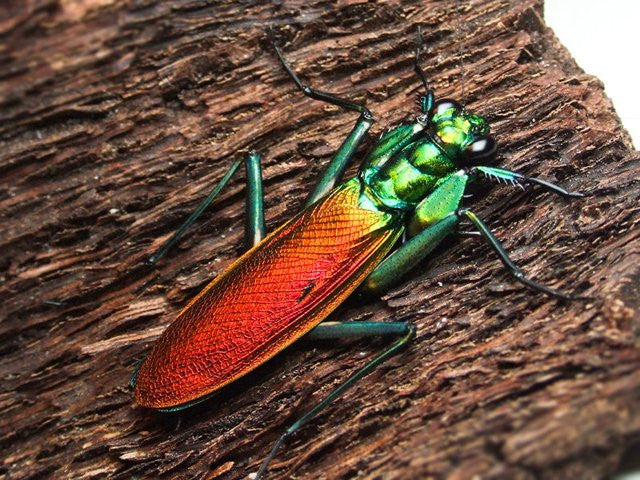
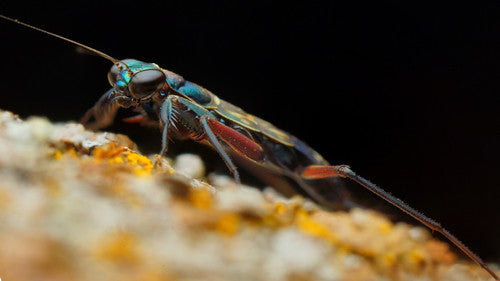
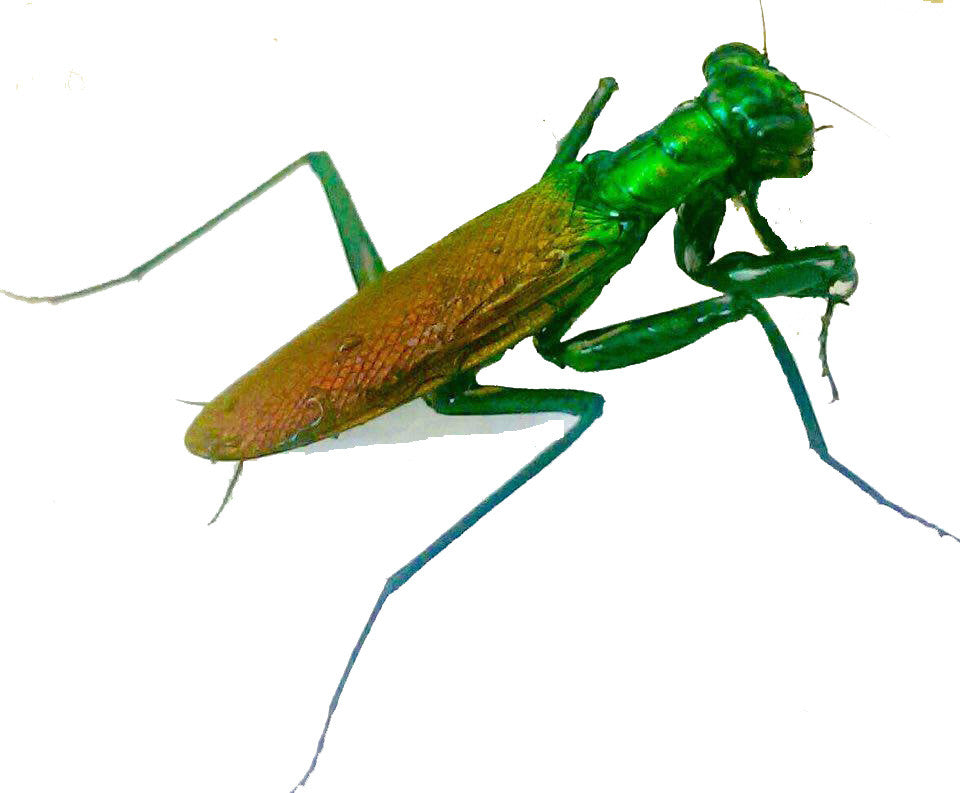
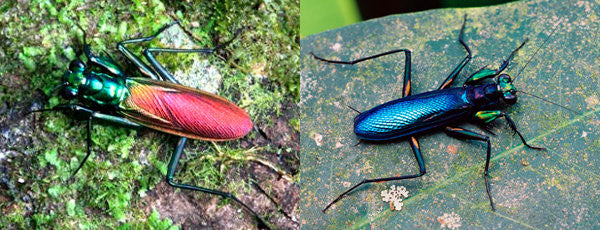

Metallyticus violaceous
$300.00 - $550.00
Metallyticus violaceous -Borneo
These are a favorite of mine. Having both M. splendidus and M. violaceus pairs and nymphs.
Care is more tedious than difficult as habitat and dietary needs are specific. They prefer quiet conditions and like bark and cork with crevices for breeding and laying ooths. Flat stone surfaces or ledges seem to encourage feeding and basking in warm sunlight. Cooler night temperatures though humid and good air circulation.
Successful rearing and breeding a worthwhile challenge. These iridescent sparkling mantids are beautiful and special. Seemingly shy and cautious with intrusions or activity and noise. Quick aggressive hunters though content species communally.
I am keeping logs as things develop. I have not found much data on record except for a small number of breeders observations and some recent entomological research. I will share those findings in the future or if interested contact me and will share those publications.
I do see many dead pinned specimens for sale, collected for tourist trade and curiosity. I expect they're more valuable pinned as collectors specimens, framed or resin paperweights. Bothersome as their beauty the cause of demise as many other animals hung on mantles and worn for decoration.
I feel privileged to have these, and intent on maintaining breeding colonies of Metallyticus species.
If have Metallyticus species for sale, trade or breeding exchange, with intent to ensure bloodlines, please contact me. Be certain it will be a rewarding relation$hip. Craig Baker USMantis.com









